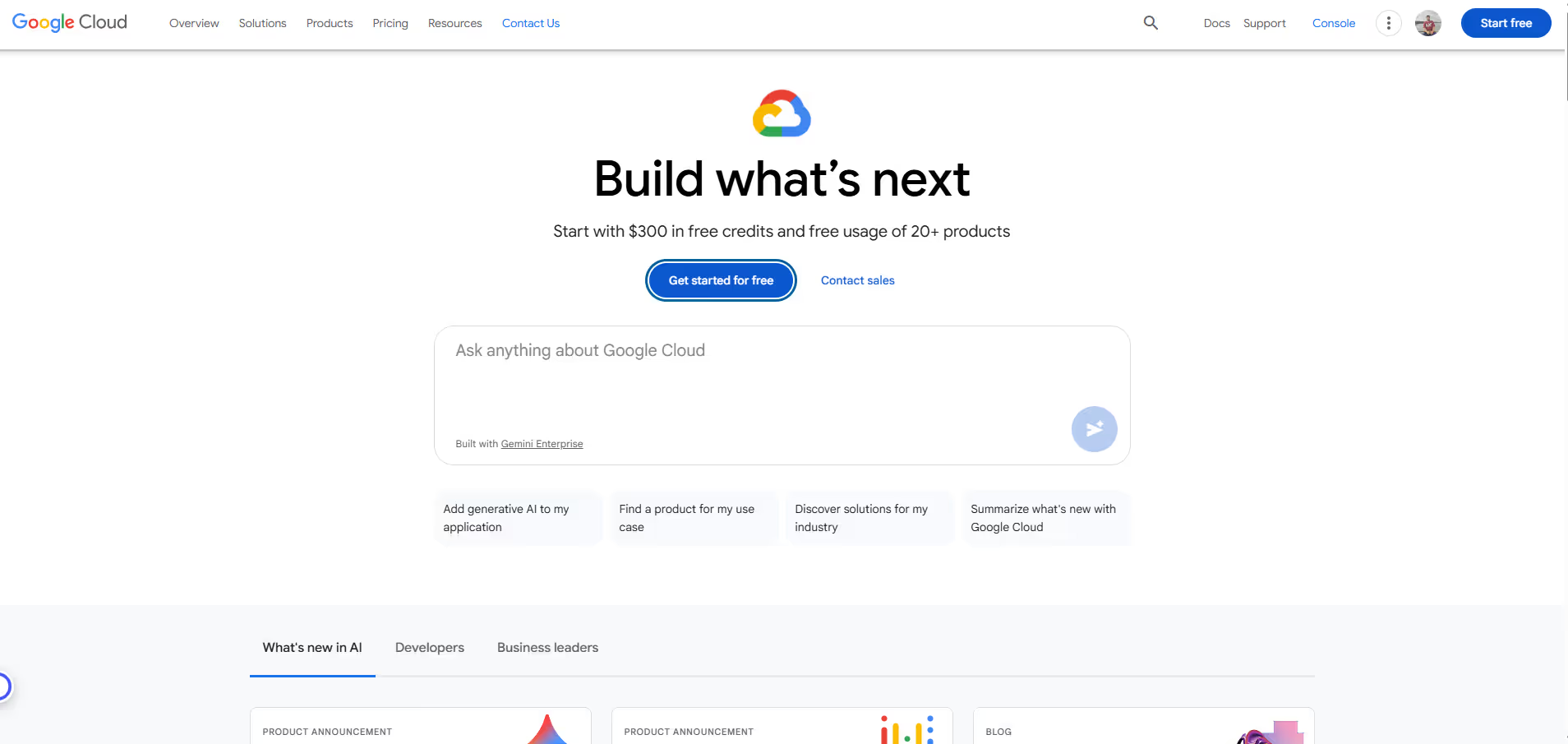Google Cloud
Description
Key Applications
- Data Analytics & AI: Utilizing BigQuery, Dataflow, and AI Platform for advanced data processing, machine learning model training, and predictive analytics at scale.
- Web & Mobile Applications: Hosting scalable web servers, APIs, and mobile backends using App Engine, Compute Engine, and Cloud Run for dynamic application delivery.
- Enterprise IT Modernization: Migrating existing infrastructure, deploying managed databases, and building secure hybrid cloud environments with services like Anthos and Cloud SQL.
- Container Orchestration: Managing and deploying containerized applications with the industry-leading Google Kubernetes Engine (GKE) for unparalleled scalability and reliability.
Who It’s For
Pros & Cons
How It Compares
- Versus AWS: GCP often distinguishes itself with superior capabilities in data analytics, AI/ML, and Kubernetes (GKE), stemming from Google's core technological strengths. AWS offers a broader and deeper range of services and commands a larger market share, often seen as the most mature cloud provider.
- Versus Azure: Google Cloud is typically perceived as more developer-centric with robust open-source support and advanced global networking. Azure leverages its strong integration with Microsoft enterprise products (e.g., Windows Server, SQL Server) and is often preferred by organizations with significant existing Microsoft investments.
Bullet Point Features
- Compute Engine: Customizable virtual machines (VMs) with live migration capabilities.
- Google Kubernetes Engine (GKE): Fully managed Kubernetes service for container orchestration.
- BigQuery: Serverless, highly scalable, and cost-effective enterprise data warehouse.
- Cloud Storage: Scalable and durable object storage for various data types.
- Cloud AI Platform: Integrated tools for building, deploying, and managing machine learning models. Cloud Run: Serverless platform for running containerized applications.
- Cloud Spanner: Horizontally scalable, globally distributed relational database. VPC Network: Global private networking with extensive connectivity options and high performance.
Frequently Asked Questions
Find quick answers about this tool’s features, usage ,Compares, and support to get started with confidence.

Google Cloud is a cloud computing platform that provides a wide range of infrastructure, platform, and software services. It allows businesses and developers to build, deploy, and scale applications and services using Google’s global data centers.

Google Cloud offers tools for compute, storage, networking, AI & machine learning, analytics, databases, and serverless applications. These services help organizations reduce infrastructure costs, improve scalability, and leverage advanced technology to innovate quickly.

Google Cloud provides IaaS (Infrastructure as a Service), PaaS (Platform as a Service), SaaS (Software as a Service), Big Data analytics, AI/ML tools, cloud storage, networking solutions, and security services. It is designed to support a wide range of industries and applications.

Yes, Google Cloud is beginner-friendly through free trials, extensive tutorials, documentation, and easy-to-use console tools. Beginners can deploy simple applications and gradually explore more advanced features as they grow more comfortable.

Google Cloud is ideal for developers, IT professionals, enterprises, startups, and businesses of all sizes. Users can expect scalable infrastructure, global availability, robust security, flexible pricing, integrated AI and analytics tools, and reliable performance, helping them innovate and manage resources efficiently.





.avif)




